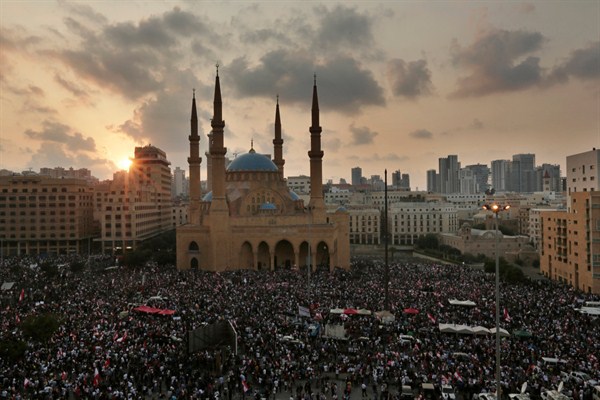From Lebanon and Iraq to Ecuador and Chile, popular protests have shaken governments and captured the imagination of pundits worldwide in the past few weeks. Combined with the mass demonstrations that forced regimes in Algeria and Sudan to cast aside longtime leaders earlier this year, as well as the Yellow Vest movement that stunned France from December 2018 through the late spring, some observers are wondering whether we are witnessing a revolutionary moment of global proportions. Has popular dissatisfaction with the unfair distribution of globalization’s spoils reached a tipping point? Or are these protests locally driven, offering little or no insights into broader trends?
At first glance, any attempt to draw broad conclusions from the disparate protest movements runs into formidable obstacles. The differences between the countries where they erupted seem to outweigh by far whatever common characteristics they share.
Algeria and Sudan, for instance, were deeply entrenched authoritarian regimes, while Ecuador and Chile are democratically elected and accountable governments. Algeria and Ecuador had recently instituted austerity programs rolling back government subsidies that had become core components of the social contract. By contrast, Chile’s economic model has historically lacked a social safety net, making life precarious for even middle-class earners, and Iraq is a dysfunctional state that has never fulfilled its end of any meaningful social contract at all. France and Algeria are strong and centralized governments, whereas Lebanon and Iraq are weak and fractured states.

